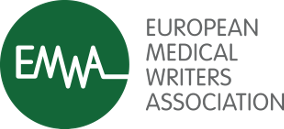Regulatory News - August 2018
EMA held, on 13 June 2018, a public hearing to give European citizens the opportunity to share their experience with quinolones and fluoroquinolones, a class of antibiotics widely prescribed in the EU. The public hearing is part of a review being carried out by EMA’s safety committee, the PRAC, which is investigating the persistence of serious side effects with quinolones and fluoroquinolones mainly affecting muscles, joints and the nervous system. These side effects are of particular importance when the medicines are used for less severe infections.
Safety communication update - Review of hydroxyethyl starch (HES)-containing medicinal products - revised CMDh Position: The CMDh has decided that HES solutions for infusion should remain on the market despite PRAC recommendation from January 2018 to suspend marketing authorization because they continued to be used in critically ill patients and patients with sepsis despite restrictions introduced in 2013, due to the risk of kidney injury and death in these patients. The CMDh considered that a combination of new risk minimisation measures would effectively ensure that HES solutions are not used in patients at risk.
EMA is reviewing medicines containing the active substance valsartan that is supplied by Zhejiang Huahai Pharmaceuticals (China) to manufacturers producing some of the valsartan medicines available in the EU. The review was triggered after the company detected an impurity, N-nitrosodimethylamine (NDMA), in the valsartan active substance. NDMA is classified as a probable human carcinogen. While the review is underway, national authorities across the EU are recalling medicines containing valsartan supplied by Zhejiang Huahai. Valsartan medicines are used to treat patients with high blood pressure in order to reduce complications such as heart attack and stroke. It is also used in patients who have had heart failure or a recent heart attack.
EMA has started a review of bacterial lysate medicines, which are authorised in some EU member states for treatment or prevention of respiratory tract infections (infections of the airways and lungs) and for chronic (long-term) respiratory conditions. Recent studies have cast doubt on the effectiveness of bacterial lysate medicines in reducing the number and severity of respiratory infections in adults and children who experience repeated infections.
EMA identifies gaps in industry preparedness for Brexit: survey indicates that some companies need to step up efforts to ensure medicine supply in the EU.
EMA and CMDh issued practical guidance for procedures related to Brexit for medicinal products
The new Clinical Trial Regulation EU No. 536/2014 will come into application in 2019, replacing the existing EU Clinical Trial Directive (EC) No. 2001/20/EC. The Regulation will ensure a greater level of harmonisation of the rules for conducting clinical trials throughout the EU. It introduces an authorisation procedure based on a single submission via a single EU portal, an assessment procedure leading to a single decision, rules on the protection of subjects and informed consent, and transparency requirements.
EMA updates its policy on access to documents: “Citizens of the EU and natural or legal persons residing or having their registered office in an EU Member State have the right of access to EMA documents under Article 2(1) of Regulation (EC) No 1049/2001. This right to access concerns documents held by EMA (that is to say, documents drawn up or received by EMA and in its possession).”
ECDC Draft for public consultation - The European Centre for Disease Prevention and Control (ECDC) has been part of IMI ADVANCE; a five-year project that brings together a range of organisations from the public and private sectors to improve benefit and risk assessments of vaccines (including EMA). Such a framework would make it easier for regulators and public health authorities to make fast, more informed decisions regarding vaccination strategies, and help to maintain public confidence in immunisation, particularly when questions are raised about the safety of specific vaccines. ECDC is leading one of the work packages within the project which focuses on developing a Blueprint for a framework for an integrated EU level vaccine benefit-risk system. The draft Blueprint and the template for responses are available here.

